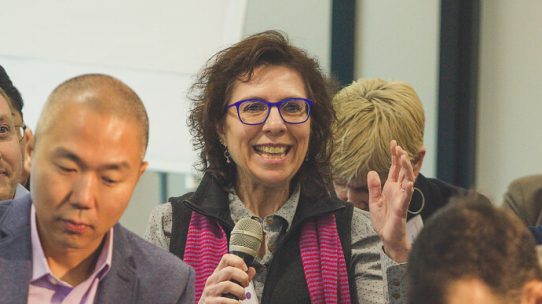SIX was born into a world very different to the one we are in now. Social innovation was beginning to be talked about more systematically. In the US, President Obama would soon set up an office of social innovation. Governments in other countries were supporting Labs, centres, teams and funds. Civil society across the world had steadily gained in strength since 1989, including in China where a new generation of innovators was growing in confidence. Business was learning to talk about diversity, equality, ecology and social impact.
But there were already counter trends. The financial crisis was also hitting at roughly the same time. The climate crisis was becoming ever more unavoidable. Smart phones were ushering in an era of misinformation and echo chambers. Populist politics was feeding off stagnant incomes, blocked opportunities, and anxieties about migration. There were already signs that disenchantment with democracy could easily fuel a desire for authoritarian leaders.
Fifteen years on these contradictory trends look even more contradictory. Some parts of the social innovation scene look quite solid: the institutions of social investment and social enterprises are in quite good health. Universities have more programmes, courses and books than ever before. And related fields, from the maker movement to the circular economy, are in a reasonably good shape.
Yet the bigger picture is surely one of retreat. In much of the world governments have become markedly more hostile to social innovation, from China to Turkey and at times, India and the US. Even in relatively favourable environments this has been a difficult time. In the UK, the austerity that began in the early 2010s has meant dramatically less resources for social experiment and much less prominence for civil society than in the 2000s.
The core idea of SIX was to connect the many innovators to find strength in numbers. Innovators often feel isolated and all too aware of the many barriers they face. But that makes it all the more vital to support each other and learn from each other. The idea was that sharing practical insights and wisdom, ideally face to face, and helped by enduring relationships, would enable the field to deepen and grow. And since the most important innovations were happening all over the world, that learning had to be as much south-south or south-north as north-south.
We thought this would be a time of growth. Yet it turned out that these approaches were needed even more in a time of attack, retreat and threat. And so, SIX convened an extraordinary series of gatherings, which are amongst the most inspiring events of my life – from Spain and France to Singapore and Colombia, South Africa to Turkey, India to China – in each case linking a global community to the specifics of time and place.
I deeply admire the hundreds of inspiring people I met and learned from in these gatherings. Yet I can’t ignore a broader disappointment. The idea that social innovation is as vital as technological innovation should have become obvious, a common sense in a world grappling with inequality, crises of climate, mental health and ageing.
Yet across the world vast resources continue to be devoted to technology far outstripping what’s invested in social ideas. The bias to hardware and to narrow ideas of economic growth remains. We haven’t yet succeeded in creating strong enough institutions that could ride out the twists and turns of the political cycle in the way that science managed. And although some businesses engaged with enthusiasm, we are now seeing a serious backlash, a return, literally, to business as usual.
I remain convinced that social innovation will be part of the common sense of the 21st century and that the most successful societies will be those that can tap into the collective intelligence of all of their citizens, and not those that concentrate power and wealth in small elites.
But the transition will be hard, and we will see plenty of retreat and regression too – to empire, hierarchy and old attitudes.
Luckily social innovators tend to be pretty tough and resilient and not easily disheartened. It’s not always easy to be ambassadors for a better future. But our world depends on some people at least, being willing to be more than observers, critics and commentators – to be willing to act, and to embody in their own lives the answers the world needs to its problems. Let’s hope SIX continues to thrive, and that in 2040 we can look back on a time when the trends have bent back towards progress.






